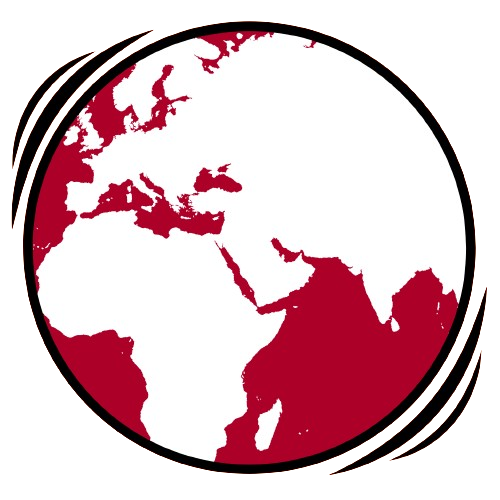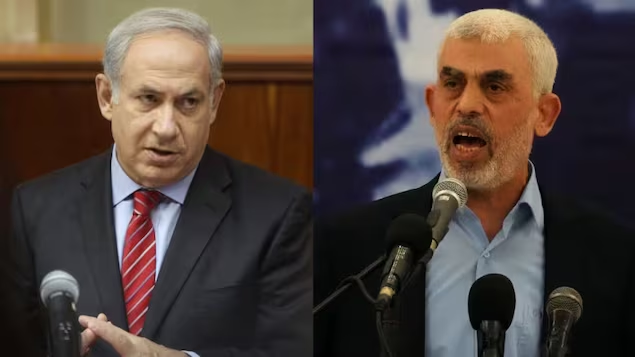The International Criminal Court’s prosecutor is seeking arrest warrants for Israel’s Prime Minister and Hamas leader Yahya Sinwar in connection with the October 7 attacks and the Gaza war.
ICC Prosecutor Karim Khan filed applications for the arrests on Monday against the two leaders, as well as the commander of Hamas’s military wing, Mohammed Diab Ibrahim Al-Masri, and Israel’s defence minister Yoav Gallent, citing allegations of war crimes and crimes against humanity committed in Israel and the State of Palestine.
The prosecutor said there were “reasonable grounds to believe that” Netanyahu and Defence Minister Gallant “bear criminal responsibility” for a series of “war crimes and crimes against humanity,” committed since at least October 8, the day after the Hamas-led attack on Israel.
These include “starvation of civilians as a method of warfare as a war crime…intentionally directing attacks against a civilian population [and] extermination and/or murder”.
In a statement, the prosecutor also said that there were reasonable grounds to believe that Hamas’s Sinwar, Al-Masri and Ismail Haniyeh “bear criminal responsibility” for murder, extermination and taking hostages – among numerous other crimes – since the Gaza conflict erupted.
Although the Hague-based ICC is not a UN organization, it has an agreement of cooperation with the United Nations. And when a situation is not within the court’s jurisdiction, the UN Security Council can refer the situation to the ICC, granting it jurisdiction.
To complement the allegations, Prosecutor Karim Khan, a British national born in Edinburgh, noted that his Office had interviewed victims and survivors of the October 7 Hamas-led attacks in Israel.
This included former hostages and eyewitnesses “from six major attack locations: Kfar Aza, Holit, the venue of the Supernova Music Festival, Be’eri; Nir Oz and Nahal Oz”.
On the issue of the liability of the top Israeli officials Netanyahu and Gallant, the ICC Prosecutor cited “starvation as a method of war”.
This and other crimes against humanity were allegedly committed “as part of a widespread and systematic attack against the Palestinian civilian population pursuant to state policy”.
To reinforce the allegations, Khan cited “interviews with survivors and eyewitnesses, authenticated video, photo and audio material, satellite imagery and statements” which showed “that Israel has intentionally and systematically deprived the civilian population in all parts of Gaza of objects indispensable to human survival”.
Detailing the impact of “total siege” imposed by Israel on Gaza after October 8 2023, the ICC request to judges explained that this involved “completely closing” the three border crossing points – Rafah, Kerem Shalom in the south and Erez in the north – “for extended periods and then by arbitrarily restricting the transfer of essential supplies – including food and medicine – through the border crossings after they were re-opened”.
Among other deprivations, the Israeli siege also cut off water and electricity pipelines to Gaza, the ICC Prosecutor continued, noting that Gazans also faced physical attacks when queuing for food while other “attacks on and killing of aid workers…forced many agencies to cease or limit their operations”.
The effects of the state policy were “acute, visible and widely known”, Karim Khan said, noting the UN Secretary-General’s warning some two months ago that “1.1 million people in Gaza are facing catastrophic hunger – the highest number of people ever recorded anywhere, anytime” as a result of an “entirely man-made disaster”.
The prosecutor insisted that “intentionally causing death, starvation, great suffering” to civilians were clear breaches of the ICC’s foundational charter, signed in Rome in 2002. Israel is not a signatory to the Rome Statute while Palestine is.
“I have consistently emphasized that international humanitarian law demands that Israel take urgent action to immediately allow access to humanitarian aid in Gaza at scale. I specifically underlined that starvation as a method of war and the denial of humanitarian relief constitute Rome Statute offences.”
In addition to the request to judges to issue warrants, the ICC statement noted that it was pursuing “multiple and interconnected additional lines of inquiry” into crimes committed since October 7.
“Today, we once again underline that international law and the laws of armed conflict apply to all. No foot soldier, no commander, no civilian leader – no one – can act with impunity,” the prosecutor said, while also highlighting his concern over escalating violence in the West Bank.
“Nothing can justify wilfully depriving human beings, including so many women and children, the basic necessities required for life. Nothing can justify the taking of hostages or the targeting of civilians.”
In a call to all parties in the Gaza conflict “to comply with the law now”, the ICC Prosecutor said his Office “will not hesitate to submit further applications for warrants of arrest if and when we consider that the threshold of a realistic prospect of conviction has been met”.
Unlike the International Court of Justice (ICJ) – which is the UN’s principal judicial organ for settling disputes between countries – the ICC tries individuals. The ICC is a permanent court, unlike temporary tribunals such as those set up to try grave crimes committed in the former Yugoslavia and Rwanda.

